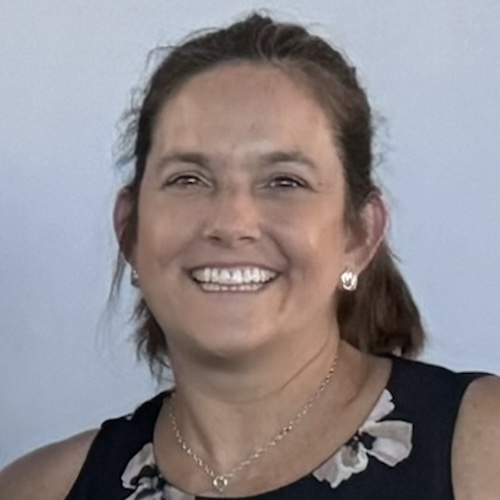Filipe’s Stage 4 Lung Cancer with EGFR exon 19 Deletion Story
Interviewed by: Taylor Scheib
Edited by: Katrina Villareal

Filipe was diagnosed with stage 4 lung cancer at 36. He reflects on the challenges and critical decisions that shaped his treatment path. Being a nonsmoker, he was shocked by his diagnosis following a severe headache that prompted a brain MRI, revealing multiple metastases in the brain and a primary tumor in the lung. Despite disbelief and seeking second opinions, doctors confirmed the advanced stage of his condition.
The treatment began with brain surgery to address a 4 cm metastasis. Biomarker testing revealed an EGFR mutation, enabling targeted therapy that initially worked well. However, disease progression after nine months necessitated further interventions, including chemoablation for kidney metastases and SBRT for lung activity. Eventually, a new line of treatment with a bispecific antibody offered hope when options dwindled.
Managing side effects became a significant focus, especially as the current treatment led to severe skin issues and nail problems. Adjusting the treatment schedule provided some relief. Emphasizing the importance of second opinions and advocating for personalized care, Filipe highlights the need for patients to be informed and assertive. Despite setbacks and fears of running out of options, he remains hopeful, crediting research and innovation in lung cancer treatments for extending his life.
- Name: Filipe P.
- Age at Diagnosis:
- 36
- Diagnosis:
- Lung Cancer (NSCLC)
- Staging:
- Stage 4
- Mutation:
- EGFR exon 19 Deletion
- Symptom:
- Headache
- Treatments:
- Surgery: to remove brain metastasis
- cryoablation: to remove kidney metastasis
- Targeted therapy
- SBRT
- Bispecific antibody


Thank you to Johnson & Johnson for supporting our patient education program! The Patient Story retains full editorial control over all content.
This interview has been edited for clarity and length. This is not medical advice. Please consult with your healthcare provider to make treatment decisions.
- Introduction
- How I Found Out I Had Lung Cancer
- Preparing for Brain Surgery
- Learning About Biomarkers
- Targeted Therapy Worked for Nine Months
- Finding Another Line of Treatment
- Side Effects of the Current Line of Treatment
- Communicating with My Doctors About the Side Effects
- The Fear of Running Out of Treatment Options
- My Biggest Advice for Lung Cancer Patients
Introduction
I was diagnosed with stage 4 lung cancer at the age of 36. I’m married and I have a daughter. I have electronic hobbies.
Before my diagnosis, life was well. I was an IT systems administrator for an insurance company. My daughter was five years old when I was diagnosed.
The MRI revealed seven brain metastases and a 4 cm metastasis on the back of my head.
How I Found Out I Had Lung Cancer
I used to say I’m healthy all the time. I don’t have behaviors that justify my diagnosis, so it was a shock.
I was very lucky because my diagnostics took one day. When I had a headache, I went to the doctor and the first thing the doctor asked me to do was a brain MRI. When I was in the MRI machine, the technician asked me to wait because he wanted to call the doctor. I asked him why because the result takes at least one week. He said the doctor needed to see it.
The MRI revealed seven brain metastases and a 4 cm metastasis on the back of my head. For the doctors, it was very easy to diagnose because there was evidence. I had brain surgery two weeks after my MRI. They told me that the primary cancer would probably be lung because lung cancer usually metastasizes to the brain very quickly. They did a CT scan and biopsied the primary site and confirmed that I had stage 4 lung cancer.
At the appointment with the doctor, my wife was with me. When he said that it was cancer, I didn’t want to believe it because I never smoked in my life. I was healthy. I usually don’t go to the doctor, so it was very awkward for me. I started thinking about second opinions, but the doctor said there was no doubt about it. It was a shock.


Preparing for Brain Surgery
I went to the hospital. They double-checked everything with a CT scan and confirmed that it was lung cancer.
The first CT scan showed lesions on my liver. Fortunately, it was benign, but they found cancer in my bones, my left lung, and my head. They told me that I needed brain surgery right away because the 4 cm metastasis on my brain wouldn’t go away with other therapies. The brain is the last place a patient wants to have surgery.
The doctor said it was a very easy surgery. When they removed the bone, they were able to immediately take it out.
I started at a private hospital where I was diagnosed. They wanted me to undergo radiotherapy for my brain. I asked for a second opinion at a cancer center and they said the brain metastasis would not respond to radiotherapy and that I needed to have brain surgery. Because I’m a nonsmoker patient, I will probably have a mutation and if I’m eligible to undergo targeted therapy, usually the metastases respond very well to this kind of therapy.
I started to be treated at the cancer center. I had brain surgery to remove the biggest metastasis. After it was confirmed that I had the EGFR mutation, I started with a targeted therapy that’s very common for EGFR patients.
Second opinions are very important. There is a small margin of error in this disease. If you don’t choose the treatment well, you may not be able to choose another treatment. Listening to the doctors is very important. Get a second opinion or even a third opinion.
There were no other options for me at the time. I was very lucky because the metastasis was on the surface, so the doctors didn’t need to navigate into my brain to remove it. It only took 50 minutes. The doctor said it was a very easy surgery. When they removed the bone, they were able to immediately take it out. They didn’t need to do a whole lot.
Brain surgery is tough to think about, but it needs to be done. I wrote a letter saying goodbye to my family for them to open in case I die. Fortunately, everything went well and 24 hours later, I was standing up and walking.


Learning About Biomarkers
At the time, I didn’t understand why biomarkers were so important. Knowing your biomarker will define what kind of treatment you can have. It’s an expensive exam, but it’s very much needed because the biomarker will allow you to choose the best treatment for your cancer. The biomarker could save your life.
Targeted Therapy Worked for Nine Months
The average progression-free survival of the targeted therapy that I underwent is 18 months. I had a very short run. It only worked for nine months. The first few months were very good because it cleared four brain metastases. It also cleared my bone and reduced the cancer in my primary site.
After three months, I started to have early progression. A metastasis appeared in my kidney. We did a needle biopsy and a biomarker test to confirm if it was the same cancer because it’s very unusual for lung cancer to metastasize on the kidney. When it was confirmed that it was the same cancer, we did cryoablation on the kidney. We froze the metastasis with argon to kill the cancer cells. I also had SBRT on my lung because my lung started to have activity on the primary site based on a PET scan.
After nine months, in August 2023, I had severe progression. At the time, I had no other options on the market.
Knowing your biomarker will define what kind of treatment you can have.
Finding Another Line of Treatment
I was very lucky because my current treatment, which is a bispecific antibody, is only used for EGFR exon 20 and I am exon 19. I was very lucky because I had no options left. Amivantamab appeared and I had a great response to it.
I was very lucky because the drug came out. It’s frightening to think about running out of options and only relying on drugs that aren’t effective for your disease.
It’s similar to the sensation of when you receive the diagnosis thinking that you’re going to die, but this time, I have more information. I know exactly what my options are and even though they’re very few, I’m more aware of what’s happening. In the beginning, everything is new and you start to collect more information. But when I had the progression, I knew exactly what was going to happen.


Side Effects of the Current Line of Treatment
With targeted therapy, you can take one pill a day at home and have a normal life. With amivantamab and chemotherapy, you need to stay at the cancer center for six hours every three weeks. It’s not targeted, so it attacks the cancer cells but also the healthy cells, so you need to deal with the side effects.
It’s not as comfortable as targeted therapy. You need to reorganize your life according to the infusion days. If the toxicity is too high, I can postpone for one week, so sometimes I do four-week intervals instead of three. The major side effect is the skin and that’s why I have these pimples all over my body. I also have a lot of nail problems.
The side effects started to manifest weeks after taking the drug. It started with pimples and because I’m on blood thinners as well, everything was full of blood. After two or three months, I reached the peak of my side effects, and the side effects started to smoothen. Right now, only the nails are my major problem.
I used to have various scalp problems, pimples, and blood, but after almost 11 months, it’s only the nails and scalp. I control it with topical corticoids. I used to put a lot of cream, but it wasn’t enough. I need to take corticoids when I have treatments; otherwise, the skin becomes very red and has sunburn-like pain.
The rash is very tough because, for example, when I take a bath, I cannot use a towel and rub my skin. After all, it hurts a lot. I need to dry it very carefully with a towel. I stopped wearing white because you will see blood sometimes. The pain is also associated with that. Sometimes I’m unable to do normal things when I experience the peak of my side effects. For example, I cannot wear sneakers because it’s closed and I have nail problems on my feet, so I wear flip-flops all the time. The main problem is it doesn’t heal. Whatever you do, it doesn’t heal 100%. It can get better, but it never heals.
The toxicity starts to accumulate. In the beginning, it’s only one or two nails. Nowadays, it’s all of them. I only have one finger without problems. The rash is tough, but at some point, it starts to be manageable because you know your body, so you know what to do and know to avoid some troubles.
I’m a stage 4 lung cancer patient with brain metastasis. Forget the skin.
Communicating with My Doctors About the Side Effects
Doctors need to be careful with how to deal with their patients. They usually say that if they cannot control the side effects, treatment may be stopped and the patient starts to hide their side effects because they’re afraid of stopping treatment.
My dermatologist told me that in the beginning. If my skin becomes very bad, we need to stop treatment. I asked her, “What is the threshold?” I’m a stage 4 lung cancer patient with brain metastasis. Forget the skin. I started to understand when things go very bad with the rash and why we may need to stop treatment.
Treatment can be flexible. Instead of every three weeks, you can do it every four weeks, like I do now. One week can make a lot of difference for patients. A patient needs to know that everything is flexible.
I’m very happy with my current doctor, who’s my third doctor. You need to advocate for yourself. With all due respect, doctors need to understand that they are working for us and not the other way around. The patient has the power. He can stop treatment. He can postpone treatment. It’s our life, so we have a say and we need to be heard. Otherwise, we can change the doctors or change the medical team. Everything can change.

The Fear of Running Out of Treatment Options
Running out of options is scary. Research is very important. Without research, people would run out of treatments. Treatment can save lives. I’m an example of that. I believe that if it wasn’t for the drug I’m currently on, I wouldn’t be here, so it’s very important to have options.
Cancer is a monster, but there is hope.
My Biggest Advice for Lung Cancer Patients
There has been more development in lung cancer in the last five years than in the last 50, so there are a lot of things happening. Don’t look at the statistics. The data online is outdated. There is a lot of hope. Cancer is a monster, but there is hope.

Special thanks again to Johnson & Johnson for its support of our independent patient education content. The Patient Story retains full editorial control.

Inspired by Filipe's story?
Share your story, too!
More EGFR Lung Cancer Stories
Jennifer M., Lung Cancer, EGFR+, Stage 4 (Metastatic)
Symptoms: None per se; discovered during physical checkup for what seemed to be a sinus infection
Treatments: Radiation therapy (stereotactic body radiation therapy or SBRT), targeted therapy
Samantha V., Lung Cancer, EGFR+, Stage 2, Grade 3
Symptoms: Breathlessness, hoarseness, sinus infections, fatigue, pain in left side
Treatments: Clinical trial (targeted therapy)
Natasha L., Lung Cancer, EGFR+, Stage 4
Symptoms: Hoarse voice, squeaky breathing, cough, weight loss, fatigue
Treatment: Targeted therapy
Jeff S., Lung Cancer, EGFR+, Stage 4 (Metastatic)
Symptom: Slight cough
Treatments: Surgery, radiation, chemotherapy, targeted therapy
Jill F., Lung Cancer, EGFR+, Stage 1A
Symptom: Nodule found during periodic scan
Treatments: Surgery, targeted therapy, radiation




